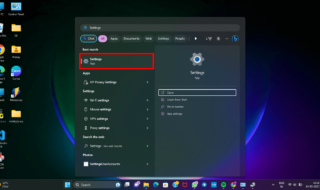Physical fax machines aren’t commonplace anymore, but they do exist. However, countless people today rely on digital faxing services. Regardless of which option is used, a person should always follow best practices to keep personal information safe. The following guide provides an overview of these practices.
Identifying Information
When faxing your personal information, only put the minimum when it comes to identifying information. This information typically appears at the top of the fax, so it is the first thing a person will see when they get the fax. If this information is being forwarded to another agency, remove this information before forwarding it.
Avoid Using Public Fax Machines
If a fax machine isn’t readily available, a person might be tempted to visit a local store or faxing service at another public location. Before doing so, learn whether other options are available. Personal information may be stored on the hard drive of the machine used, which means other people may have access to it. Turn to a digital faxing solution rather than using a public fax machine whenever possible.
Know Who is Receiving the Document
Before sending a fax, reach out to the recipient. Let them know the document is being transmitted. Ensure that they are available to receive it on the other end. This reduces the risk of sensitive information falling into the wrong hands.

If you choose to use an e-faxing service, you need to take an additional step. Once the document has been transmitted, connect with the recipient. Ensure they received all pages. The service does not track and record every page like a conventional fax machine does. There may be a delay in the service based on the transmission practices used, so the receiver might not get the fax right away. Reaching out to them ensures the proper party received the document and they have all the required information.
Renting, Leasing, Selling, and Donating Physical Fax Machines
Physical fax machines contain hard drives. These hard drives hold sensitive information that you do not want to fall into the wrong hands. Take steps to ensure it does not.
When leasing or renting a machine, only work with a provider that will allow you to keep the hard drive when the lease or rental period is up. If this is not possible, ask how the provider safeguards this information. They may periodically purge the data or have a passcode to ensure only authorized parties can access the data.
When selling or donating a fax machine, remove the hard drive or shred the information storage device in the machine. A vendor can help complete this task if needed. Taking this step ensures the information doesn’t fall into the wrong hands.
Sharing a Machine
Some agencies choose to share a physical fax machine to keep costs down. This machine must remain in a secure area and each agency must implement policies regarding access to this machine. One way to secure the machine is to require a personal passcode to access documents and information. Any agency or organization that must adhere to strict confidentiality guidelines should not share a machine with others, particularly if they are not required to adhere to these guidelines.
Establish Retention Policies
Put policies into place regarding how long faxes are kept, including those received via email. In addition, know the retention policies of digital fax service providers. These providers keep logs and records of all transmissions. Policies vary by provider, so know what they are before choosing a provider. Furthermore, learn about each provider’s access and privacy policies to make an informed choice.
One can never be too careful with sensitive information. Always use the best practices outlined above when sending a fax. Doing so will ensure the information does not fall into the wrong hands, as you don’t want to deal with the consequences of it doing so. They can be disastrous.



